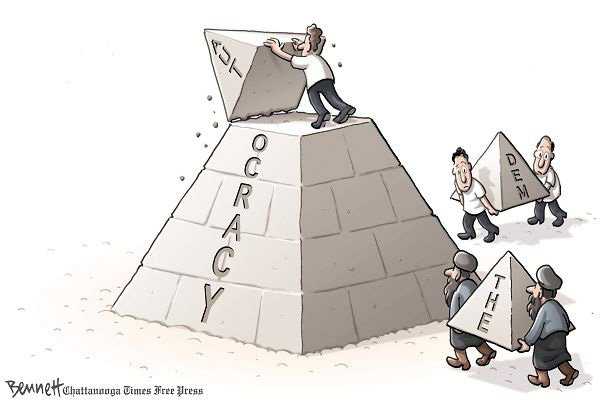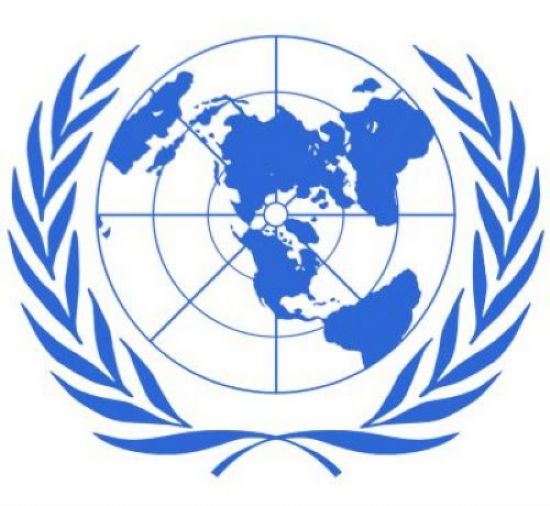By DUSAN STOJANOVIC
BELGRADE, Serbia (AP) — Former Bosnian Serb leader Radovan Karadzic, accused architect of massacres making him one of the world’s top war crimes fugitives, was arrested on Monday evening in a sweep by Serbian security forces, the country’s president and the U.N. tribunal said.
Karadzic is suspected of masterminding mass killings that the U.N. war crimes tribunal described as “scenes from hell, written on the darkest pages of human history.” They include the 1995 massacre of 8,000 Muslims in Srebrenica, Europe’s worst slaughter since World War II.
“This is a very important day for the victims who have waited for this arrest for over a decade. It is also an important day for international justice because it clearly demonstrates that nobody is beyond the reach of the law and that sooner or later all fugitives will be brought to justice,” said Serge Brammertz, the tribunal’s head prosecutor.
President Boris Tadic’s office said Karadzic has been taken before the investigative judge of Serbia’s war crimes court — a legal procedure that indicates he would soon be extradited to the U.N. war crimes court in The Hague, Netherlands.
If Karadzic is extradited to the tribunal in The Hague, he would be the 44th Serb suspect extradited to the tribunal. The others include former President Slobodan Milosevic, who was ousted in 2000 and died in 2006 while on trial on war crimes charges.
Heavily armed special forces of the Serbian Gendarmerie have been deployed around the war crimes court in Belgrade where Karadzic reportedly has been held. Karadzic’s brother, Luka, also arrived at the location in central Belgrade.
The former Bosnian Serb leader has topped the tribunal’s most-wanted list since his indictment in July 1995 on genocide charges. Serbia has been under increasing pressure from the European Union to turn over war crimes suspects.
The charges against him, last amended in May 2000, are genocide, extermination, murder, wilful killing, deportation, inhumane acts, and other crimes committed against Bosnian Muslim, Bosnian Croat and other non-Serb civilians in Bosnia and Herzegovina during the 1992-1995 war. The specific allegations include six counts of genocide and complicity in genocide, two counts of crimes against humanity as well as violating laws of war and gravely breaching the Geneva Conventions
The indictment alleges that Karadzic, in concert with others, committed the crimes to secure control of areas of Bosnia which had been proclaimed part of the “Serbian Republic” and significantly reducing its non-Serb population.
“He was at large because the Yugoslav army was protecting him. But this guy in my view was worse than Milosevic,” Richard Holbrooke, former U.S. ambassador who negotiated an end to the Bosnian War, told CNN. “He was the intellectual leader.”
Holbrooke calculated the Karadzic is responsible, directly or indirectly, for the deaths of 300,000 people, because without him there would have been no war or genocide.
“That’s the number of people killed. And without Radovan Karadzic this thing wouldn’t have happened, in my view,” Holbrooke said.
The fugitive’s wife, Ljiljana, told The Associated Press by phone from her home in Karadzic’s former stronghold, Pale, near Sarajevo that her daughter Sonja had called her before midnight.
“As the phone rang, I knew something was wrong. I’m shocked. Confused. At least now, we know he is alive,” Ljiljana Karadzic said, declining further comment.
As leader of Bosnia’s Serbs, Karadzic hobnobbed with international negotiators and his interviews were top news items during the 3 1/2-year Bosnian war, set off when a government dominated by Slavic Muslims and Croats declared independence from Yugoslavia in 1992.
But his life changed by the time the war ended in late 1995 with an estimated 250,000 people dead and another 1.8 million driven from their homes. He was indicted twice by the U.N. tribunal on genocide charges stemming from his alleged crimes against Bosnia’s Muslims and Croats.
Karadzic’s reported hide-outs included Serbian Orthodox monasteries and refurbished mountain caves in remote eastern Bosnia. Some newspaper reports said he had at times disguised himself as a priest by shaving off his trademark silver mane and donning a brown cassock.
The European Union said the arrest “illustrates the commitment of the new Belgrade government to contributing to peace and stability in the Balkans region.”
A statement from the EU presidency, currently held by France, said the arrest was “an important step on the path to the rapprochement of Serbia with the European Union.”
On Saturday, Serb authorities turned over an ex-Bosnian Serb police chief, Stojan Zupljanin, who was arrested in the town of Pancevo last week after nine years on the run. A Belgrade court on Friday rejected his appeal against extradition and Zupljanin pleaded innocent Monday to 12 charges of murder, torture and persecution of Bosnian Muslims and Croats in 1992.
Zupljanin was charged with war crimes for allegedly overseeing Serb-run prison camps where thousands of Muslims and Croats were killed during the 1992-95 war in Bosnia.
Source: Associated Press, 22.07.2008
————–
Bosnian Serb Arrested on War Crimes Charges
By REUTERS
Published: July 21, 2008
BELGRADE, July 21 (Reuters) – Bosnian Serb wartime president Radovan Karadzic, one of the world’s most wanted men for his part in civilian massacres, has been arrested in Serbia, President Boris Tadic’s office said on Monday.
The arrest of Karadzic and other indicted war criminals and their delivery to the Hague war crimes tribunal, is one of the main conditions of Serbian progress towards European Union (EU) membership.
It came on the eve of a meeting of EU Foreign Ministers which is scheduled to discuss closer relations with serbia following the formation of a new pro-western government. A war crimes prosecutor was due to visit Belgrade on Tuesday.
Karadzic’s place of hiding has been a constant subject of international speculation since he went underground in 1997. Sources close to the government said Karadzic, distinguished by his characteristic long, grey hair, was arrested in Belgrade.
He was currently undergoing a formal identification rocess, inccluding DNA testing, and would be meeting with investigators overnight.
“Karadzic was located and arrested,” the President’s statement said. It gave no details.
Karadzic, was leader of the Bosnian Serbs during the 1992-95 Bosnia war. He was indicted by the United Nations war crimes tribunal in The Hague in July 1995 for authorising the shooting of civilians during the 43-month siege of Sarajevo.
He was indicted for genocide a second time four months later for orchestrating the slaughter of some 8,000 Muslim men after Mladic’s forces seized the U.N. “safe area” of Srebrenica in eastern Bosnia.
He went underground in 1997 after losing power.
The West is also pressing for the arrest of Bosnian Serb military commander Ratko Mladic.






